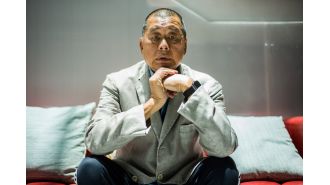Built for discomfort
Growing up in India, one of the strongest associations I made with wealth was comfort.
In a country with a large population, help was easily available. And the wealthier someone was, the more they seemed to be able to afford help of all kinds. This in turn meant wealthy folks I saw didn’t have to do any chores within their home. The help did their shopping, cooked food, ran behind their kids, and so on.
Things were outsourced and got done.
It is worth pausing a moment to consider the word we use for household tasks. We call them chores – the definition of a chore is an unpleasant but necessary task. That means the equation is simple – the more chores we outsource, the better.
And while help isn’t as cheap in other countries, the gig economy has made it possible for us to outsource chores in ways we might not have thought possible. So, if you work with the assumption that comfort is the goal, we can outsource said chores to Instacart, a weekly help-service, and so on.
My biggest reflection since wearing the CGM / continuous glucose monitor in the past 2 weeks is just how much I’ve grown to appreciate chores. After eating a meal or a snack, I look forward to getting things done around the house. That movement ensures any glucose I’ve taken in gets metabolized.
I think this has parallels to every part of our life. It has never been so comfortable to let media or the internet take over our attention. And every indicator shows AI agents will only accelerate this.
Keep extending this trend and the state of the humans in Wall-E are suddenly not unimaginable.

While it is an exaggeration, I am not sure it is all that far off. Every statistic around obesity and chronic diseases borne out our sedentary lifestyles is sobering. It isn’t surprising – the more we solve for comfort, the worse our health outcomes become.
It turns out that we are just built for discomfort. We are built to stand and to move (a lot), to do things around our homes, to lift heavy things, to sprint, to buy and eat whole non-sugary food, to get out in the warmth or the cold and take in fresh air, to wake up with the sun and sleep once it goes down, and to use less toxins and chemicals in our lives.
So many of these things are the antitheses of the image of comfort we all might have in our minds.
But we’re built for discomfort.
Ironically, the more we embrace that, the more comfortable our life will likely become in the long run.






